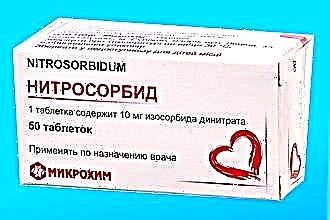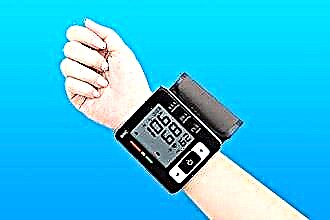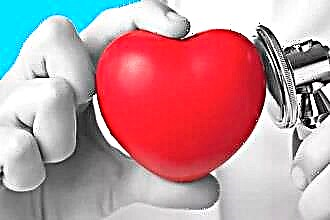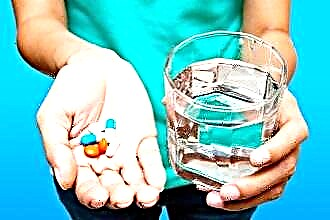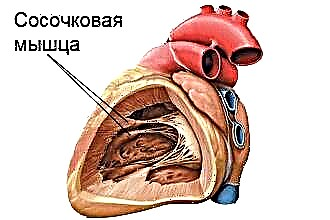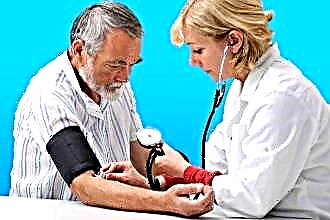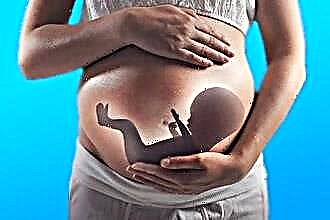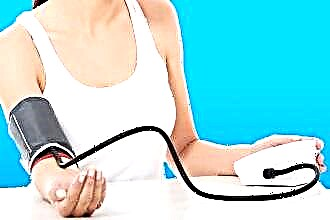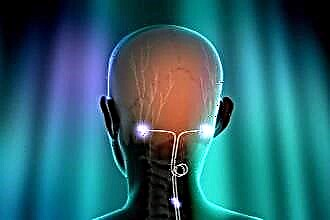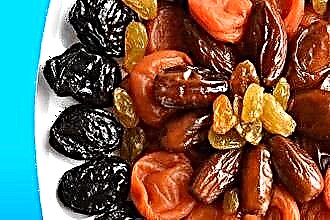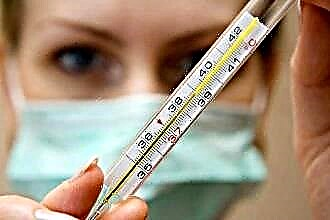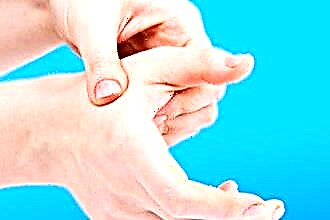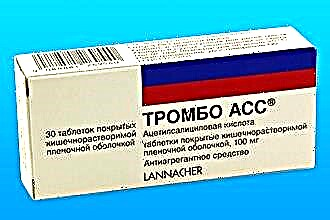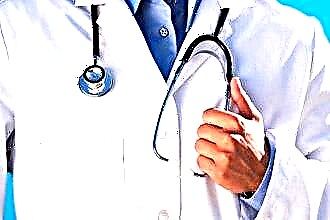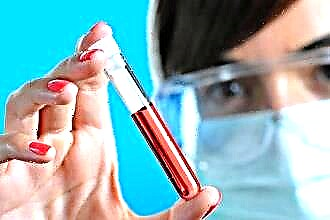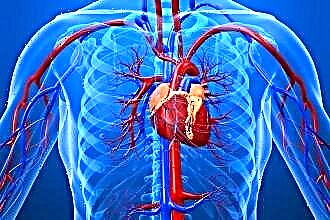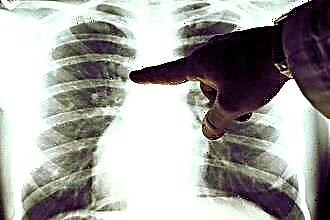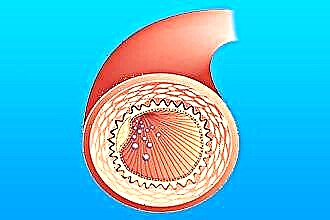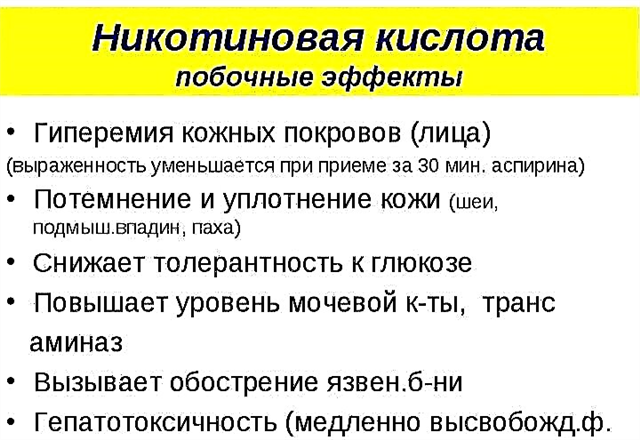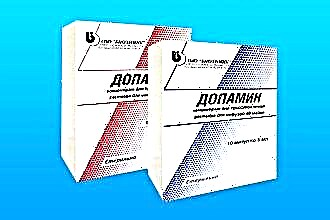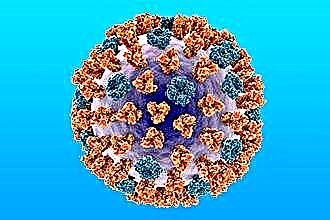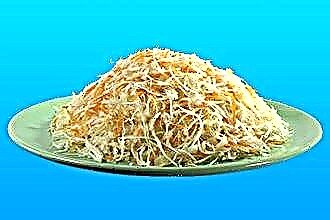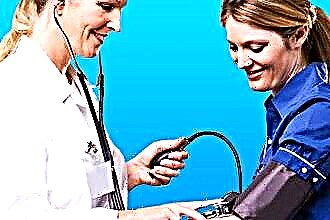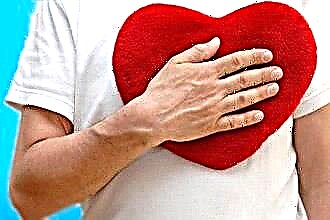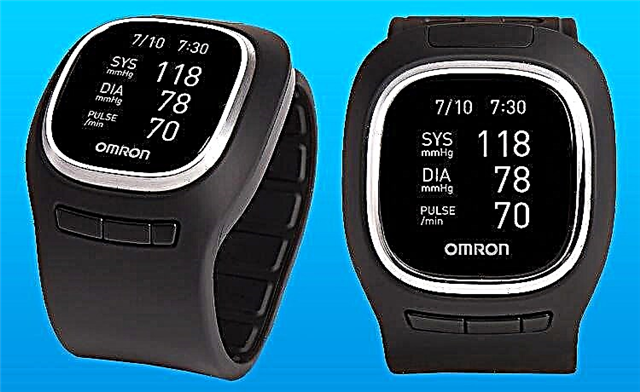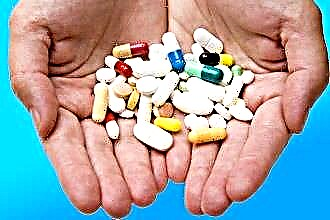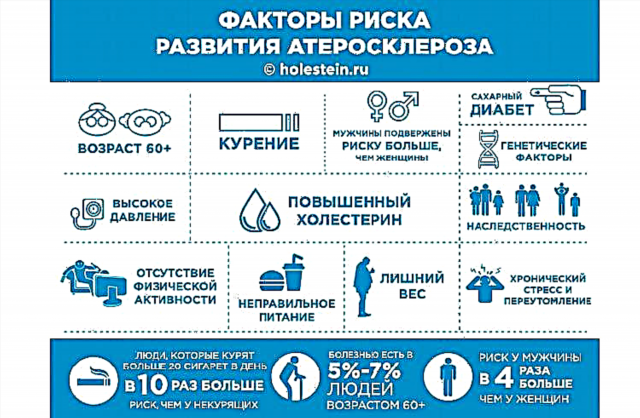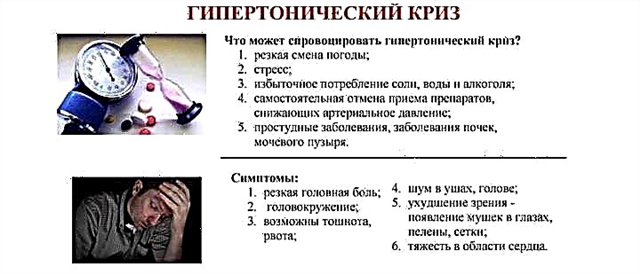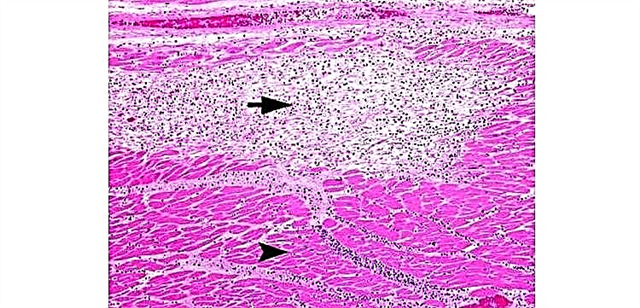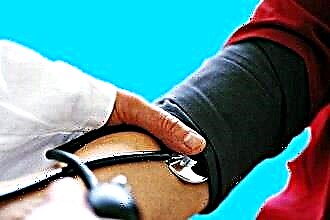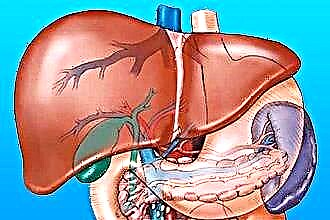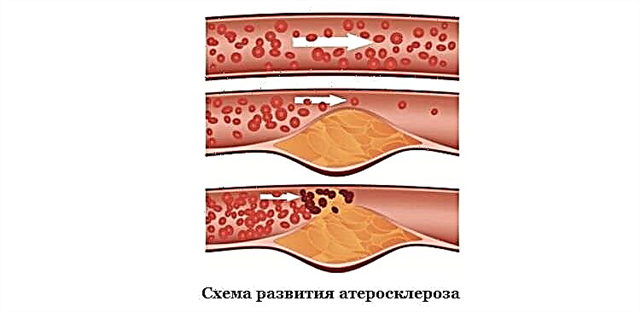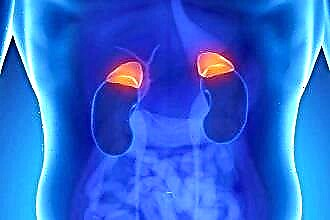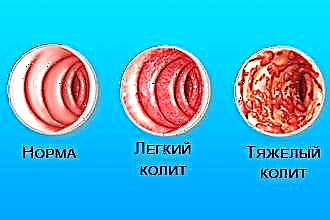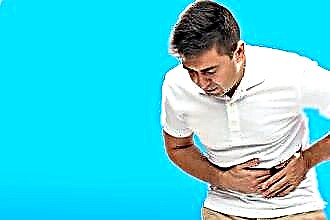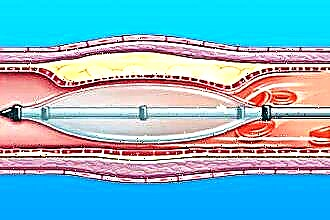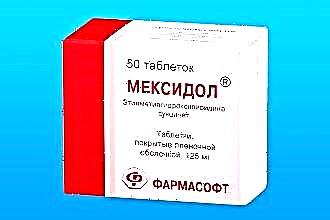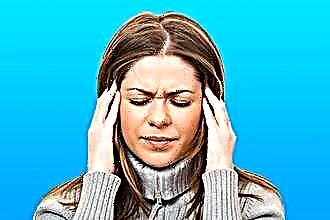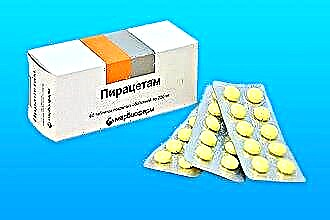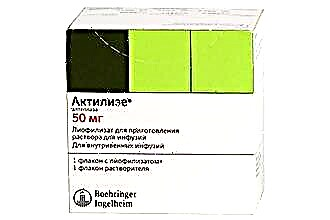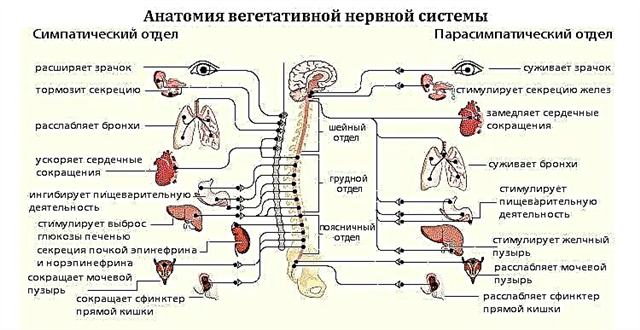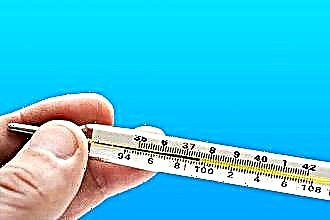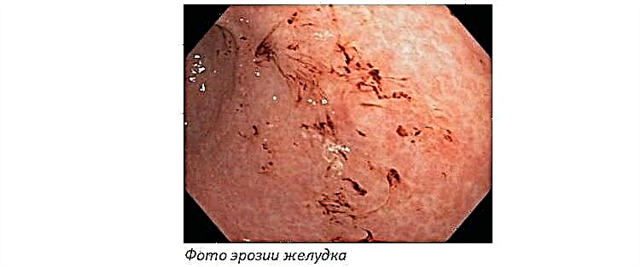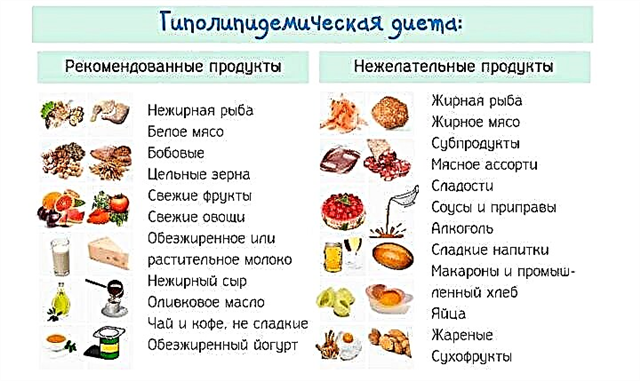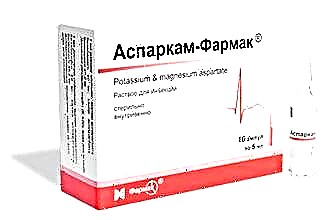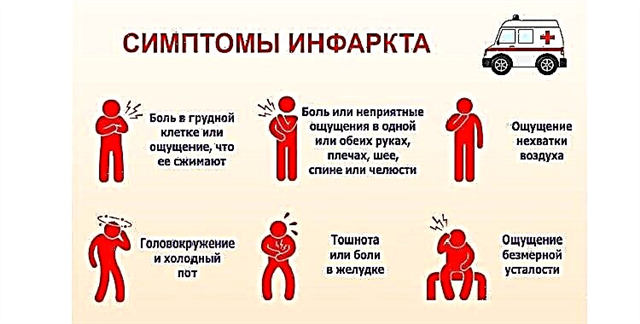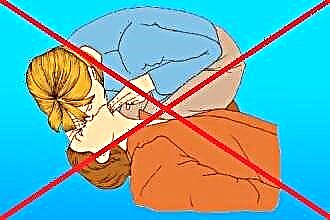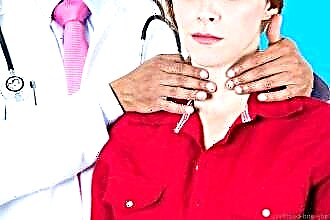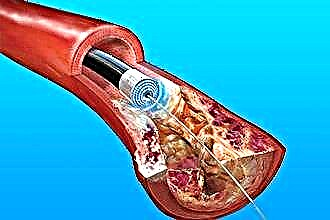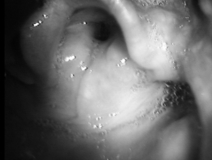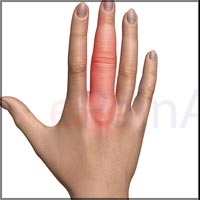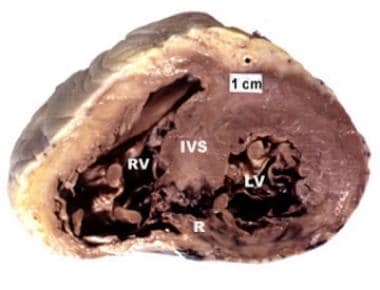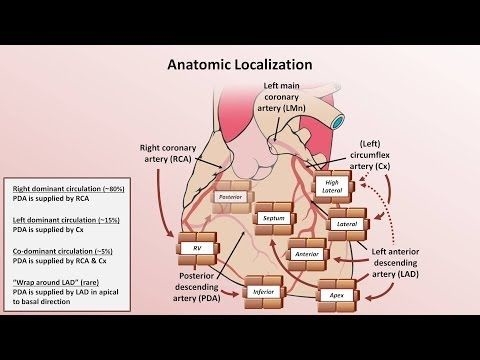General information Official website Year of foundation - 2001 Headquarters - Moscow, Russia The organization provides remote interaction and exchange of experience between Russian specialists from different therapeutic disciplines. Most of the audience
Category Cardiology
In what cases and for what reason can the pressure drop in a hypertensive patient? The causes of low blood pressure in hypertensive patients can be divided into two groups: associated with the main diagnosis (hypertension); characteristic of any representative of the human
Instructions for use of the drug Kardiket The active ingredient of the drug is isosorbide dinitrate. A sufficient number of drugs have been developed on the domestic market based on nitrates. On the international stage isosorbide dinitrate
Modern mobile methods of blood pressure and pulse monitoring There are many portable devices on the market that can measure heart rate, blood pressure and transmit data in real time or save them. They are often associated with a smartphone.
Mean arterial pressure (MAP) is the pressure in the bloodstream during the entire cardiac cycle, regardless of systole and diastole. This indicator reflects the blood supply to vital organs. In order to find out what is your AVR,
Composition and mechanism of action Papaverine hydrochloride in its chemical structure belongs to opium alkaloids, is a direct derivative of isoquinoline. This substance directly affects the phosphodiesterase enzyme, inhibiting it. This leads
Bleeding (hemorrhage) is considered the most serious condition in medical practice. One of the most common and relatively safe options for pathology is nasal (epistaxis) - a nonspecific sign of various diseases. The emergence
What are the papillary muscles of the heart? The papillary muscles (papillary) are a continuation of the inner layer of the heart muscle, which protrudes into the cavity of the ventricles, and, with the help of chords attached to the apex, provides a unidirectional current
The individual characteristics of each person affect the course of the disease, the effectiveness of treatment and the prognosis. The widespread occurrence of cardiovascular pathology requires a thorough assessment of the condition with the calculation of possible risks and complications in patients.
Fainting (syncope) is a short-term state of loss of consciousness, lasting from a few seconds to 1-2 minutes. It occurs as a result of a temporary deterioration in cerebral blood flow. Why does a person faint? Syncope Causes Decrease
Effects of Aspirin Acetylsalicylic acid is the active substance of Aspirin and belongs to the class of non-steroidal anti-inflammatory drugs, which is widely used for various diseases (myocardial infarction, coronary heart disease, unstable angina pectoris,
Arterial hypotension is a condition characterized by a drop in systolic index below 100 and diastolic index below 60 mm Hg. Art. Due to the reduced vascular tone, the blood supply to vital organs, such as the heart, is disrupted
What is the degree of arterial hypertension and why is it important to determine it? Blood pressure is considered a very dynamic indicator; even in a healthy person, it can be within a fairly wide range. So, systolic (upper)
Back of the head pain: what can you think about? A number of anatomical structures are involved in the development of headache: Vessels of the arterial circle of the brain; Venous sinuses; Basal parts of the dura mater; V, IX, X pairs of cranial
Relationship between diarrhea and blood pressure Although common, diarrhea and blood pressure are not direct causes of each other. These are just individual symptoms, pathogenetically not directly related in any way. They are only accompanying
What is normal blood pressure during pregnancy? It is customary to treat pregnant women very kindly. And this is correct, because in this state both mother and child are vulnerable. But, oddly enough, a child in the womb is not a disease, but a physiological
The influence of the menstrual cycle on the general condition of a woman is due to the alternation of phases in the hormonal background. One of the objective indicators of changes is considered to be blood pressure, which in different periods can be higher or lower than normal. Physiological
Melissa for hypertension: does the plant have a blood pressure lowering effect? The use of this herb for hypertensive patients is quite justified. The components of lemon balm have a calming effect on the nervous system, and also lower blood pressure. Therefore, it can be used to treat
Blood pressure numbers are somewhat individual for each person and depend on the characteristics of the organism, heredity, working conditions and occupational factors. When they fall in the morning after sleep, they talk about the development of hypotension. This
Does sugar affect blood pressure? Now we can say with confidence that not only salt, which most hypertensive patients are aware of, but also the blood sugar level affects blood pressure. The higher the glucose concentration (hyperglycemia),
What does yoga have to do with the work of the cardiovascular system? Arterial hypertension is a persistent increase in pressure due to prolonged vasospasm. The main causes of the disease are chronic stress, unhealthy diet
One of the most common complaints in medical practice is chest pain. The occurrence of unpleasant sensations in the region of the heart can be caused by various diseases, both from the myocardium itself and from the lungs, muscles and nerves of the chest.
In our time, the most common pathologies are diseases of the cardiovascular system, in addition, from them and the highest mortality. The first reason for the development of myocardial infarction and ischemic stroke is the closure of the vessel by a thrombus. For prevention
Normal blood pressure (BP) in an adult, healthy person is in the range of 100/60 - 120/80 mm. rt. Art. Hypertension - an increase in indicators above the specified rate. There are a number of reasons why this disease occurs. But,
Pulse pressure: what does this indicator mean? Pulse pressure (PAP) is determined by subtracting the diastolic (lower) reading from the systolic (upper) reading after measuring blood pressure with a conventional tonometer. Average
Human pressure is indicative of a lot. The cardiovascular system performs one of the main functions - it provides blood circulation throughout the body. With a decrease in the upper systolic pressure and maintaining the lower within the normal range, they say
What are the causes of a thoracic aortic aneurysm? Aneurysmal degeneration is more common in older people. Aging leads to structural changes in collagen and elastin, which cause weakening of the aortic wall and dilatation. Because of this
Blood pressure (BP) is the force with which the blood presses on the walls of the vessels. If we talk about the norm of this indicator, then it is in the range of 110/65 - 139/89 mm Hg. Everything above is hypertension, below is hypotension. According to this parameter of people
St. John's wort is a well-known and widely used herb in folk medicine. He is credited with medicinal properties: diuretic, astringent, anti-inflammatory, immunostimulating, analgesic, antibacterial effects. St. John's wort also affects blood pressure,
Nicotinic acid (vitamin PP, vitamin B3, nicotinamide, niacin, antiallergic vitamin) is a pyridine derivative, participates in redox processes, metabolism of fats, purine bases, is a part of cellular respiration enzymes,
Medicinal properties of calendula and its ability to influence blood pressure Calendula olficinalis is a herbaceous annual plant of the Asteraceae family. Has a high stem (42-70 cm), flowers are collected in large
Tinnitus (scientifically tinnitus) is a common complaint in patients. Ringing is not a separate disease in itself, but a symptom of the pathology of the nervous, cardiovascular systems or the organ of hearing. The sound heard in the ear can be varied: clicks, noise,
How does blood pressure behave in relation to myocardial infarction? The stability of blood pressure is maintained by a complex of complex regulatory systems (hemodynamic and control systems). Hemodynamic systems: CB - cardiac output
How does the pressure change with ARVI? ARVI is a process of interaction between a virus that has penetrated into the body and the human body. Figuratively speaking, a hostile element penetrated a well-guarded base (surrounded by a barrier of tightly linked epithelial cells,
How does sauerkraut affect blood pressure and does it affect it at all? Sauerkraut contains a large number of components that can directly or indirectly affect blood pressure. So, one of its main components
What effect does chamomile have on human blood pressure? The main effects of chamomile preparations are anti-inflammatory, analgesic and antiseptic. However, due to its mild sedative and antispasmodic effect, this medicinal
Mortality from cardiovascular diseases (CVD) in the world is in first place and is 31 of the total morbidity. Some heart diseases lead to disability, which dramatically worsens the quality of life of people, and is also economically disadvantageous
The prevalence of hypertension in the adult population ranges from 20 to 60, depending on age. Constant monitoring of blood pressure at home is an extremely important preventive measure for the occurrence of cardiovascular diseases.
Pancreatitis is an inflammatory disease of the pancreas, the organ responsible for the secretion of digestive enzymes and insulin. Few people know that the acute form of the disease can occur not only with symptoms of disruption of the organ and the entire gastrointestinal
Every year, among the people who come to see me, the number of patients with chronic pathology, especially the circulatory system, is increasing. Atherosclerotic cardiosclerosis is a diffuse disease caused by damage to the coronary arteries by cholesterol
What pressure is considered life-threatening and requires immediate administration of antihypertensive drugs? AH is diagnosed if, with two repeated measurements on different days, the patient's blood pressure is higher than 140/90 mm Hg. Art. According to the value of systolic (SBP) and diastolic
When a patient is admitted to the hospital, I, as a cardiologist, always determine at what stage the disease is: I conduct an ECG in dynamics, evaluate the results of a blood test and the general condition of the patient. This allows you to decide on further actions.
Arterial hypertension (AH) is manifested by a persistent increase in blood pressure figures above the age norm. More than 30 people suffer from this pathology. By the age of 50-65, its prevalence increases to 48. Occurs with hypertensive
Cerebral atherosclerosis is a dangerous pathology that occurs in patients of the older age group. The disease develops when protein and lipid metabolism is disturbed, deposits of atherosclerotic plaques that block blood flow in the vessels of the brain. Absence
Men are ready to overcome a thousand and one dangers in order to save the lives of their loved ones. They perform feats and fight with external enemies. However, when your own body fails, it becomes difficult to be a hero. Heart failure is
Pain in the region of the heart is one of the most common symptoms in patients with a therapeutic profile. The intensity, duration, conditions for the onset of an attack are characteristic signs that determine the possible course and prognosis of pathology. Acute conditions, for example
Atherosclerosis is a pathological process in which there is a violation of the metabolism of fats in the body. High levels of low-density cholesterol, circulating in the plasma, are deposited on the walls of blood vessels, preventing the free flow of blood. This
With tachycardia, the heart rate increases - 90 beats per minute or more. It is often caused by non-cardiac diseases, as well as pathologies of the nervous and circulatory systems, directly or indirectly affecting their work. Most often
The adrenal glands are small paired glands located at the upper poles of the kidneys. Each organ consists of a medulla and a cortical covering it, which, in turn, is functionally divided into three zones responsible for the production of certain
Vegetovascular dystonia (VVD) is a condition in which dysfunction of the nervous system, a decrease in vascular tone, and a violation of hormonal metabolism are observed. The development of pathology provokes an irregular work schedule, insufficient rest, stressful
Atherosclerosis: what is it? The very word "atherosclerosis" sounds threatening. But its decoding is capable of amusing: from Greek athḗra is translated as "gruel", and sklḗrōsis means "hardening". Causes of the disease and its morphological substrate
The ear is the organ of perception that is most susceptible to external influences.Decrease or increase in intracranial pressure, vascular pathology, inflammatory processes, ingress of water into the ear canal, foreign bodies are the main causes of ear congestion.
Description of the disease, cause and stage The abdominal aorta (BA) is the largest vessel in the human body. It begins at the level of the XII thoracic vertebra and ends in the IV-V lumbar region. The artery feeds almost all internal organs (stomach, intestines,
In the modern world, there is more and more talk about the problem of atherosclerosis and its connection with the occurrence of ischemic stroke and myocardial infarction. But cholesterol plaques can affect blood vessels not only in the heart and brain, but also in other organs, disrupting
Vegetovascular dystonia (VVD) is a set of body reactions that develop as a result of various deviations of the autonomic nervous system (VNS). The condition is often difficult to diagnose because the symptoms are masked by other conditions.
Why is the course of VSD often accompanied by a headache and what is its mechanism? At the heart of the development of headache in VSD is several mechanisms (spasm or vasodilation of the brain). With autonomic dysfunction, the innervation of the vascular wall is disturbed
What are the characteristic features and what are the symptoms? There are two main forms of VSD. The first is described as a hypertensive type of dysfunction, and it is characterized by excessive activity of the sympathetic division of the ANS. As a result, one of the most striking
Emergency care for AMI at the prehospital stage should be aimed at: adequate pain relief; renewal of the patency of the damaged vessel, prevention of reocclusion (repeated cessation of blood circulation); maintaining patency
Myocardial infarction (MI) is one of the most severe types of coronary heart disease (CHD). The cause of this disease is the accumulation of atherosclerotic plaques in the coronary vessels and, as a result, blockage of the arteries and a sharp cessation of blood supply.
Description of the syndrome and the physiology of its occurrence In order to understand the essence of the VSD, I will first explain how it arises. The nervous system is divided into somatic and autonomic. The somatic part provides motor responses to external influences
Can the temperature rise during a heart attack? At its core, acute myocardial infarction (AMI) is an aseptic necrosis of the heart tissue. Cardiomyocytes die off 6-8 hours after the attack, the inflammatory process begins and the temperature rises.
Myocardial infarction (MI) is an acute form of coronary artery disease. It occurs as a result of a sudden violation of the blood supply to the heart muscle, due to blockage (thrombosis) by an atherosclerotic plaque of one of the coronary arteries. This leads
What is transmural myocardial infarction There are several forms of cardiac muscle necrosis, and the most deadly and destructive of them is acute transmural myocardial infarction. The cause of the development of this pathology is acute insufficiency
Diet for atherosclerosis: general principles of the diet In atherosclerosis, it is necessary to adhere to a diet to reduce the risk of developing cardiovascular disease (coronary heart disease), which leads to complications. Change in quantity and character
To correct electrolyte imbalance in medical practice, the drug "Asparkam" is used, consisting of potassium and magnesium asparaginate. Specialists in the field of therapy, cardiology and transfusiology are increasingly detecting cases of irrational prescription
Acute myocardial infarction is not without reason considered the most dangerous of all ischemic diseases, and if untreated, it ends, at best, with the development of chronic heart failure. Extensive necrosis and death of heart cells are often
With a sudden cardiac arrest and cessation of breathing, the vital activity of the body is disrupted, a state of clinical death develops. This terminal period is 3-5 minutes, but it is reversible if detected early. Emergency help and getting started
Acute myocardial infarction is a serious pathology. Timely help and adequate therapy affect the future prognosis for a person. The quality and duration of life after a heart attack depends on many factors. Instrumental diagnostics
What kind of assistance is provided to a patient in intensive care? A patient whose ambulance is diagnosed with acute coronary syndrome is immediately taken to the intensive care unit. Often in large cardiology clinics there are separate specialized
What is aortic stenosis? Aortic stenosis (AS) - narrowing of the area of the left ventricular outflow tract (the place where the aorta exits the heart), caused by calcification of the valve leaflets or its congenital anomalies that create a barrier to expulsion
What is cardiac arrest? Cardiac arrest is a rapid and complete cessation of the pumping function of the myocardium, as a result of which cardiac activity becomes completely ineffective. This leads to impaired blood circulation in all tissues and organs.
A heart attack is an acute insufficiency of blood flow in the muscular layer of the heart, the development of which is associated with thrombotic damage to the vessels of the coronary segment with subsequent myocardial necrosis in the area supplied by the affected artery.
Symptoms of cardiopathy: how to suspect a pathology and what are the first signs? Often, patients do not immediately notice the symptoms of the disease, attributing them to fatigue, stress, and poor nutrition. Unfortunately, many go to the doctor when they have already appeared
What is mitral stenosis? Mitral stenosis (MS) is a cardiac pathology caused by an abnormal structural defect (narrowing of the left atrioventricular opening), which prevents the passage of blood from the left atrium to the ventricle, caused by
In modern medicine, various techniques are used to assess the heart rate and pulse frequency. These indicators reflect the state of human health, and the figures obtained in its determination are taken into account in the diagnosis of diseases of the cardiovascular
Blood pressure (BP) is the pressure with which blood presses against the walls of blood vessels. Optimal indicators are 110/65 - 120/75 mm Hg. (numbers not higher than 139/89 mm Hg are considered the norm). There are many reasons for high or low blood pressure.
When is a sick leave issued for high blood pressure? Sick leave for people with high blood pressure should ideally be given for examination in a hospital setting. In this case, he provides preventive therapy:
How does the presence of cancer affect the value of blood pressure? Mechanisms of the influence of oncopathology on pressure Type of action The essence of the change The mechanism of implementation Direct Germination into the heart muscle Appearance of foreign inclusions (metastases)
Breastfeeding (Breastfeeding) is the key to good health of the baby and the bond between mom and newborn. Lactation is a physiological period in a woman's life, which requires careful attention to the general condition of the woman in labor. Postpartum stress, short
To correct low or high blood pressure, drugs are used both in tablet form and in drip form. For many patients, it is more familiar and more convenient to take medications in pills, they do not need to calculate the dosage every time. but
What are extrasystoles and do they pose a danger to life? Extrasystoles are premature excitations of the myocardium, which lead to its extraordinary contraction. In this case, activation of the entire heart muscle or its individual parts is possible.
An attentive attitude to one's health implies not only contacting a doctor when symptoms appear, but also regular monitoring of the main indicators of the body's work. People over 40 years of age (and patients with concomitant cardiovascular
What is atrial flutter? Atrial flutter (TP) is a rhythmic contraction of the muscle fibers of these parts of the heart, while their frequency is 220-350 times per minute. Pathology is caused by a violation of the circulation of the excitation wave in the myocardium.
Angina pectoris is a form of coronary heart disease (CHD), which is characterized by pain behind the breastbone due to acute insufficiency of blood supply to the myocardium. An attack that begins at different loads is called exertional angina pectoris, at night - rest.
Rheumatism is characterized by a systemic connective tissue inflammatory reaction, mainly cardiovascular, frequent lesions of other organs (joints, central nervous system, skin, subcutaneous fat) and a tendency to relapse. The development of this disease
Euphyllin is an antispasmodic related to xanthines. We are widely used in many branches of medicine, especially in cardiology and pulmonology. It was opened in the 80s of the 19th century. Natural sources of this substance: tea leaves, coffee beans, cocoa beans husks.
Coffee, tea, soft drinks, chocolate, and some medications contain caffeine. In small amounts, it invigorates and increases performance, and in large doses it can cause discomfort, anxiety, tremors and increased heart rate.
Myocardial infarction is a dangerous condition that takes thousands of lives every day. Its complications are considered no less serious. One of them is postinfarction angina. It is she who increases the likelihood of repeated cardiovascular catastrophe,
Mechanism of action Among the most important factors affecting the state of hemodynamics, and, in particular, blood pressure, is the functioning of the renin-angiotensin-aldosterone system (RAAS). Activation of this chain of biologically active substances
Extrasystole is a rhythm disturbance in which, against the background of a normal pulse, a sudden contraction occurs, the impulse to which comes from another area of the cardiac conduction system. This phenomenon may be associated with organic pathologies of the myocardium.
Angina pectoris is one of the forms of ischemic heart disease (CHD), occurs with pain in the chest, is caused by ischemia (a decrease in blood supply to any part of the myocardium due to a violation of arterial blood supply), the cause of which is atherosclerosis.
Concor is a highly selective beta1-blocker. It has predominantly cardiac effects (decrease in heart rate, heart rate), at the same time does not have a significant negative effect on the smooth muscles of the respiratory tract and metabolic
Physical activity with arrhythmias is necessary to increase the endurance of the circulatory system. A correctly selected set of exercises with an optimal level of activity normalizes hemodynamics, increases the functional reserve of the body. Classes on
Can Corvalol be used in children? The drug acts due to the presence of such components: phenobarbital reduces the irritating effect on the brain and, depending on the size of the dose and the frequency of administration, causes a hypnotic, sedative or tranquilizing
Indications for using Plavix "Plavix" helps in numerous conditions when it is necessary to "thin" the blood, that is, to reduce the level of clotting by blocking the ability of platelets to stick to each other. This is needed for
Most people know firsthand about the condition when they have headaches, there is a lack of oxygen, the heart hurts, they leave strength and faints occur, and neither coffee nor sweet jam helps to cheer up. These are all signs of a mysterious
Does Aspirin Help With Hangover Syndrome? Effects of the drug The active ingredient in Aspirin is acetylsalicylic acid (ASA), which belongs to the class of non-steroidal anti-inflammatory drugs (NSAIDs), namely non-selective inhibitors
The normal heart rate and rhythm is provided by the sinus node located in the thickness of the myocardium at the confluence of the inferior vena cava. If its work is disrupted, the pacemaker function is transferred to the atrial regions or located below the levels of the conductive
Atrial fibrillation is a change in the normal rhythm of the heart, which is manifested by an accelerated (from 300 to 700 beats / min), erratic excitement and contraction of individual muscle fibers of the atria. In this case, the effect of "flickering" of tissues, or fibrillation, occurs.
Myocardial infarction (MI) is an acutely emerging condition, which is characterized by the development of a focus of necrosis in the myocardium due to a cessation of oxygen supply to the site. Acute coronary syndrome (ACS) is a symptom complex that allows one to suspect ischemic changes
Cardiovascular disease is the number one cause of death worldwide. Poor nutrition, lack of adequate physical activity, bad habits, constant stress, inattention to one's health increase the risk of failures



